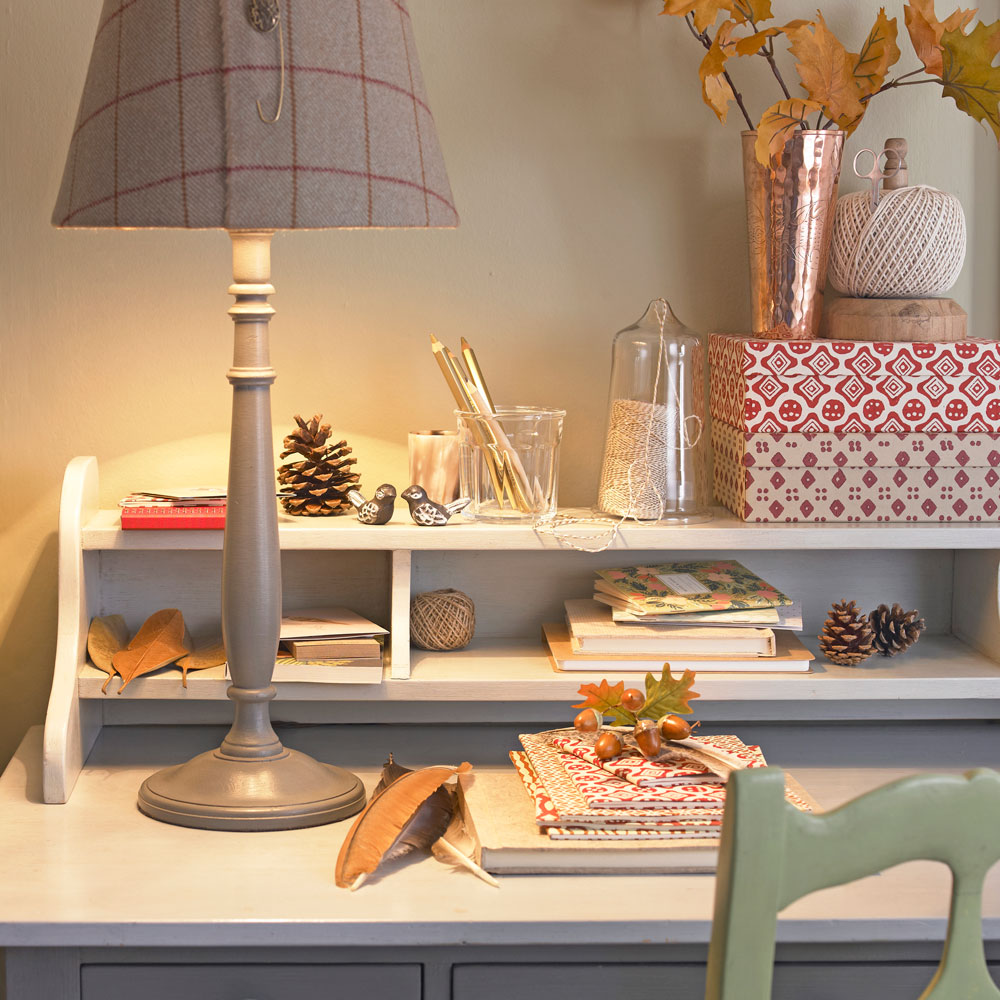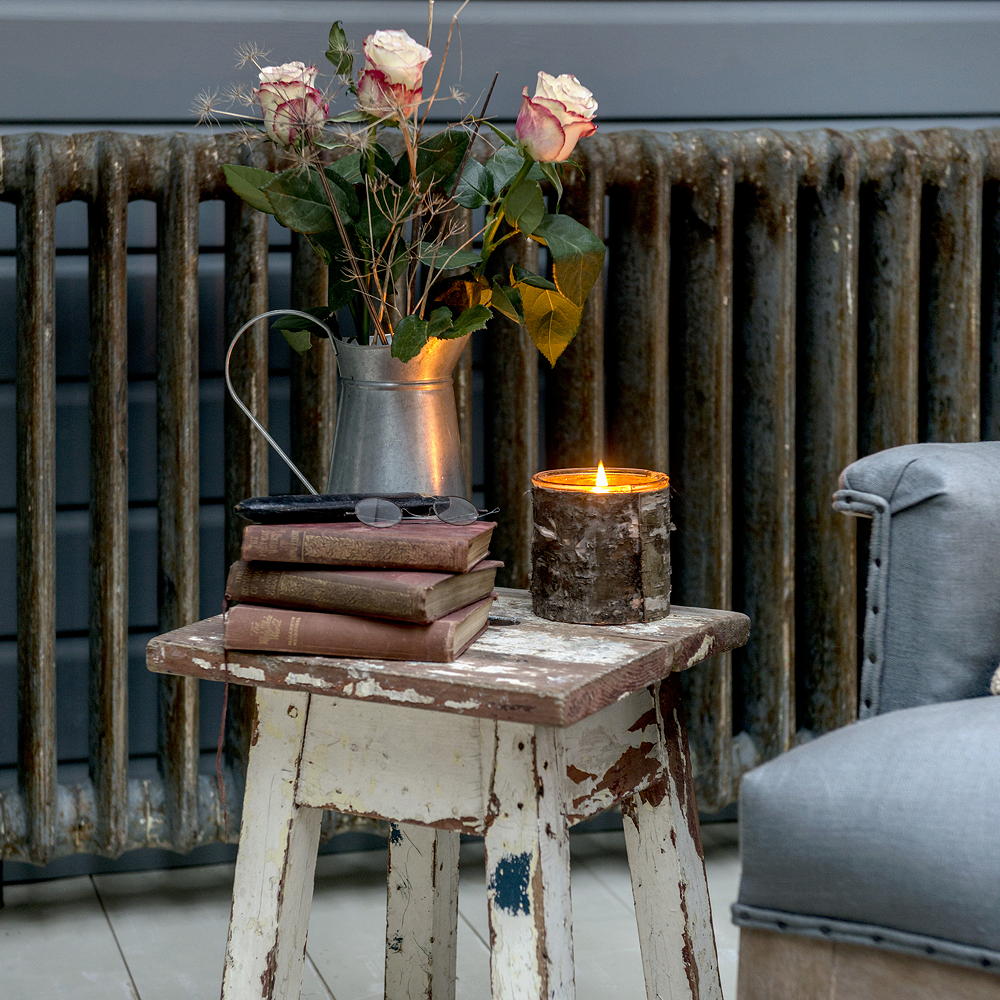Doing this one thing when the clocks go back could save households £80!
Follow these expert tips for keeping your energy use in check at home this winter
Sign up to our newsletter for style inspiration, real homes, project and garden advice and shopping know-how
You are now subscribed
Your newsletter sign-up was successful
As the clocks go back, the darker nights are closing in, meaning households could be about to see an unwanted rise in energy bills. With many UK workers also back to working from home and rising restrictions in place across the country, household bills could be higher than ever this winter.
Related: Could this £17.50 ingenious hack save money on your energy bills?
To help us tackle these increasing costs, data experts at the home energy-saving assistant Loop have shared some simple steps to help reduce overall energy usage. Making sure homes are as efficient as possible to avoid unwelcome costs this winter.
5 ways to save money at home this winter
1. Change your heating settings

As the days get shorter and the temperature drops, most are likely to flick the heating on. But are we jumping the gun?
Steve Buckley explains, 'Most people will adjust their heating according to the weather. They’ll turn the thermostat up or down, or adjust their timer settings depending on the temperature outside. But it’s very easy to forget to do this, especially when your heating is on an automatic timer. Many are likely to be running their heating on unseasonably warm autumn days when they don’t need to be.'
He goes on to say, 'If you are ready to take the plunge and turn on the heating, pay attention to the temperature you’re setting it to. Avoid aiming for the mid-20s' he advises. 'Instead, you should aim for between 18 and 21 degrees.'
Revealing, 'If you turn your central heating thermostat down by just 1 degree, you could make an annual financial saving of £80.' As well as cutting down on carbon dioxide emissions by 320kg each year.
Sign up to our newsletter for style inspiration, real homes, project and garden advice and shopping know-how
2. Switch to LED lights

It's inevitable that as the evenings get darker, earlier, you'll have your lights on for longer, especially if you're working from home. More usage means a rise in energy costs is inevitable. Loop recommends switching the bulbs in your home to LEDs to ensure you’re saving energy and money – around £35 a year in fact.
'There are some big savings to be made, with LEDs up to 10 times more efficient than a conventional or halogen bulbs' says Steve Buckley, head of data science at Loop. 'With lighting accounting for around 15 per cent of a typical household's energy bills, now's a good time to look at replacing your inefficient lighting with super-efficient LEDs so you can enjoy the savings all winter long.'
Related: Home office lighting ideas to brighten up your work space
3. Utilise the Green Homes Grant

As we spend more time than ever at home, Loop suggests now is the time to consider making permanent changes to improve its efficiency.
Steve suggests, 'If working from home is going to be a long-term arrangement, the government’s Green Homes Grant could offer the perfect opportunity for you to make improvements to both the efficiency of your home, and its environmental impact.'
'The voucher scheme will help cover the cost of making energy efficient improvements. And can be used to complete a range of projects, from insulating your home and reducing how much it costs to heat. To installing low-carbon heating to cut your home’s impact on the environment.'
However Steve warns, 'There’s not much time to waste. Vouchers need to be redeemed and all improvements completed by 31 March 2021, so now’s the time to do your research.'
4. Beware of the 'Phantom Load'

Be smarter about home-working to make savings during the next few months. Leaving desktop computers on around-the-clock could add £40 to your bills according to Loop data.
While there are appliances which need to be left on all the time, like the fridge, or kept on standby, like a smart speaker, many appliances are left on when they don’t need to be. This background electricity use is known as 'Phantom Load'. Dubbed this because of the way in which energy is invisibly drained without users necessarily realising.
'Spending more time at home usually equates to higher energy bills as inevitably we’re going to be running some household appliances for longer,' warns Steve. 'It also means we’re likely to have additional equipment plugged in that wouldn’t normally be required. However, the energy used by these extra appliances can soon add up. The good news is, making simple changes like turning things off standby can make a huge difference to your wallet.'
Analysis of Loop data found the average UK household could be wasting up to £140 unnecessarily through their Phantom Load, while in some homes this could be as much as £450.
5. Watch out for your radiators

If you’ve got the heating on for longer while you’re working from home, Loop recommends moving any sofas or furniture away from radiators. This is to ensure heat can circulate more efficiently.
Steve adds, 'If you’ve had to rearrange your room since working from home, make sure you’re not blocking off your radiators so the heat can circulate the room properly. It’s also important to do some regular upkeep and bleed radiators in your home to ensure that hot water can circulate effectively.'
Related: How to bleed a radiator – our guide to a warmer home
'A radiator needs bleeding if it feels hot at the bottom but cold at the top, takes a long time to warm up or if it’s making gurgling noises.'
If you've turned off your heating to bleed your radiators, this is the perfect time to give them a deep clean too – our guide to how to clean a radiator has all the expert tips you need.
Tamara was Ideal Home's Digital Editor before joining the Woman & Home team in 2022. She has spent the last 15 years working with the style teams at Country Homes & Interiors and Ideal Home, both now at Future PLC. It’s with these award wining interiors teams that she's honed her skills and passion for shopping, styling and writing. Tamara is always ahead of the curve when it comes to interiors trends – and is great at seeking out designer dupes on the high street.